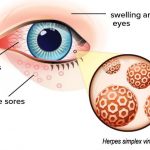
Contents
dexmethylphenidate
Dexmethylphenidate is derived from methylphenidate, a CNS stimulant. Its mechanism of action in ADHD is unclear, but it is believed to increase levels of neurotransmitters in the brain.
Dexmethylphenidate increases dopamine and norepinephrine levels by blocking reuptake after neurotransmission, improving concentration and reducing hyperactive and impulsive behaviors.
Dexmethylphenidate has a high risk for misuse, abuse, and dependence. Chronic abuse can lead to psychosis, discontinuation can cause withdrawal symptoms, and overdose can have serious consequences.
Warnings
- Avoid dexmethylphenidate if you have hypersensitivity to methylphenidate, significant anxiety, tension, agitation, glaucoma, motor tics, or a family history or diagnosis of Tourette’s syndrome.
- Use dexmethylphenidate as part of a comprehensive ADHD therapy.
- Assess risk of abuse before prescribing and monitor for signs of abuse during therapy.
- Use caution in patients with a history of drug dependence or alcoholism.
- Evaluate treatment need every 6 weeks.
- Discontinue if no improvement after one month.
- Withdrawal may unmask symptoms of the underlying disorder.
Side Effects of Dexmethylphenidate
Common side effects include headache, insomnia, restlessness, anxiety, dizziness, irritability, reduced/appetite, abdominal pain, dry mouth, indigestion, nausea, vomiting, throat pain, nasal congestion, and fever.
Less common side effects include depression, mood swings, and itching. Rare side effects include hypersensitivity reactions, swelling, allergic reactions, drowsiness, breakdown of muscle tissue, movement disorder, Tourette syndrome, peripheral vascular disease, Raynaud’s phenomenon, toxic psychosis, abnormal liver function, elevation of liver enzymes, severe liver injury, growth suppression in pediatric patients, prolonged and painful erection, and serotonin syndrome in combination with serotonergic drugs.
Seek immediate medical help if you experience serious heart symptoms, severe headache, confusion, slurred speech, severe weakness, vomiting, loss of coordination, feeling unsteady, or serious eye symptoms.
This is not a complete list of all side effects or adverse reactions. Call your doctor or report to the FDA if you experience any serious side effects.
Dosages of Dexmethylphenidate
Tablet
Capsule, extended-release
Adult:
- Initial: 2.5 orally twice daily; may increase in 2.5- to 5-mg increments every week if warranted, not to exceed 20 mg/day
- Not taking Focalin or methylphenidate: 10 mg orally every day initially; may increase in 10-mg increments every week if warranted, not to exceed 20 mg/day
- Switch from Focalin: Administer the same total daily dose as Focalin but administer every day
- Switch from methylphenidate: Initiate with half total daily dose of methylphenidate and administer every day, not to exceed 40 mg/day
Pediatric:
Children below 6 years: Safety and efficacy not established
Children 6 years and above (Focalin):
- Initial: 2.5 orally twice daily; may increase in 2.5- to 5-mg increments every week if warranted, not to exceed 20 mg/day
Children 6 years and above (Focalin XR):
- Not taking Focalin or methylphenidate: 5 mg orally every day initially; may increase in 5-mg increments every week if warranted, not to exceed 30 mg/day
- Switch from Focalin: Administer the same total daily dose as Focalin but administer every day
- Switch from methylphenidate: Initiate with half total daily dose of methylphenidate and administer every day, not to exceed 30 mg/day
Addiction/Overdose
- Dexmethylphenidate has a high potential for abuse, dependence, and overdose.
- Overdose may cause agitation, confusion, hallucinations, vomiting, headache, high temperature, tremors, convulsions progressing to coma, and serious cardiovascular conditions.
- Treat dexmethylphenidate overdose with symptomatic and supportive therapy, including respiratory support and IV fluids.
Drug Interactions with Dexmethylphenidate
- Inform your doctor of all medications you are taking to check for possible interactions.
- Severe interactions include: iobenguane I 123, isocarboxazid, linezolid, phenelzine, procarbazine, rasagiline, safinamide, selegiline, selegiline transdermal, and tranylcypromine.
Always consult your doctor before making changes to your medication regimen.
Pregnancy and Breastfeeding
- There are limited studies on the use of dexmethylphenidate in pregnancy. Use only if benefits outweigh risks.
- It is unknown if dexmethylphenidate is excreted in breast milk. Use with caution during breastfeeding.
Other Important Information about Dexmethylphenidate
- Dexmethylphenidate is a Schedule II controlled substance, with a high risk for addiction and overdose.
- Follow your doctor’s instructions and do not exceed prescribed dosage.
- Store dexmethylphenidate safely out of reach of children.
Summary
Dexmethylphenidate is used to treat ADHD in adults and children. It carries a high risk for misuse, abuse, and dependence. Common side effects include headache, insomnia, restlessness, anxiety, dizziness, irritability, reduced appetite, abdominal pain, dry mouth, indigestion, nausea, vomiting, throat pain, nasal congestion, and fever. Consult your doctor if pregnant or breastfeeding.
Dexmethylphenidate is a medication used to treat attention deficit hyperactivity disorder (ADHD) in adults and children 6 years and older. Stimulants including dexmethylphenidate have a high risk for misuse, abuse, and dependence. Chronic abuse can lead to psychosis, discontinuation can cause withdrawal symptoms, and overdose can have serious consequences. Common side effects of dexmethylphenidate include headache, insomnia, restlessness, anxiety, dizziness, irritability, reduced appetite, loss of appetite (anorexia), abdominal pain, dry mouth (xerostomia), indigestion (dyspepsia), nausea, vomiting, throat pain, nasal congestion, and fever. Consult your doctor if pregnant or breastfeeding.


